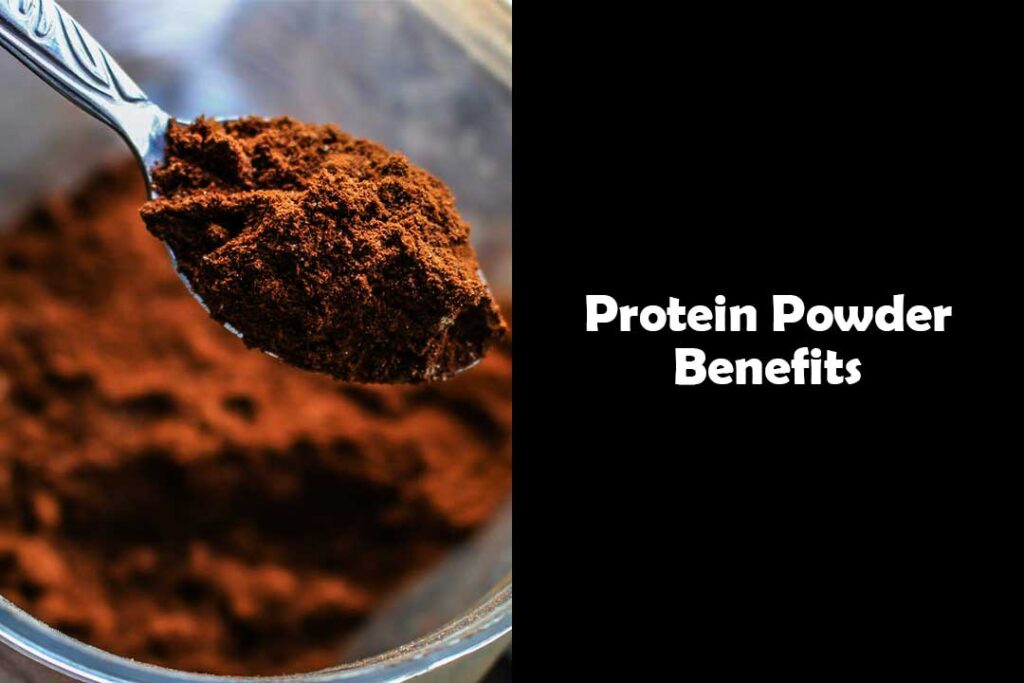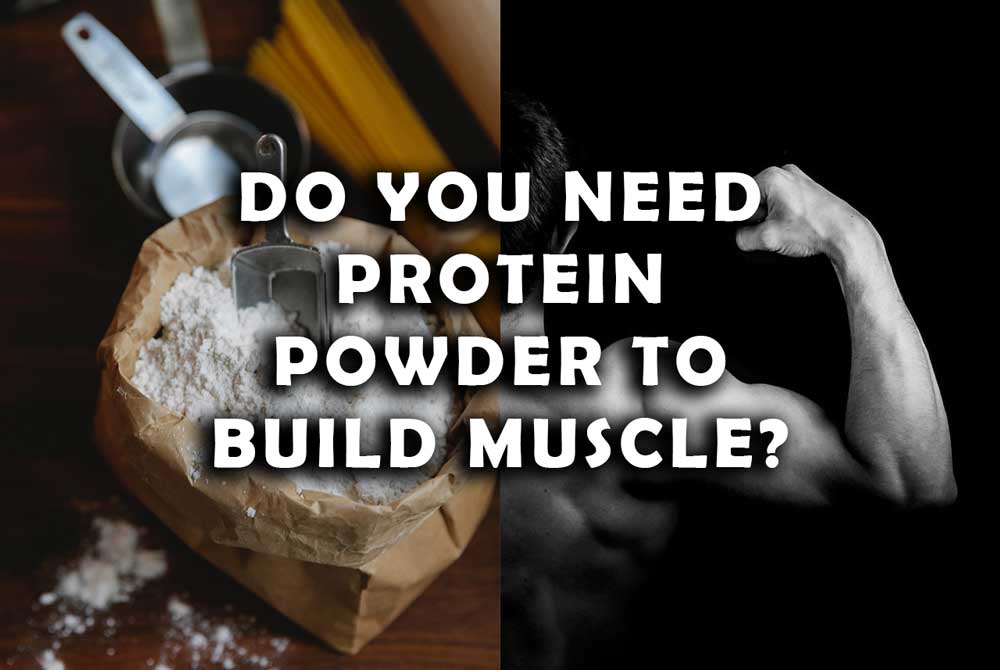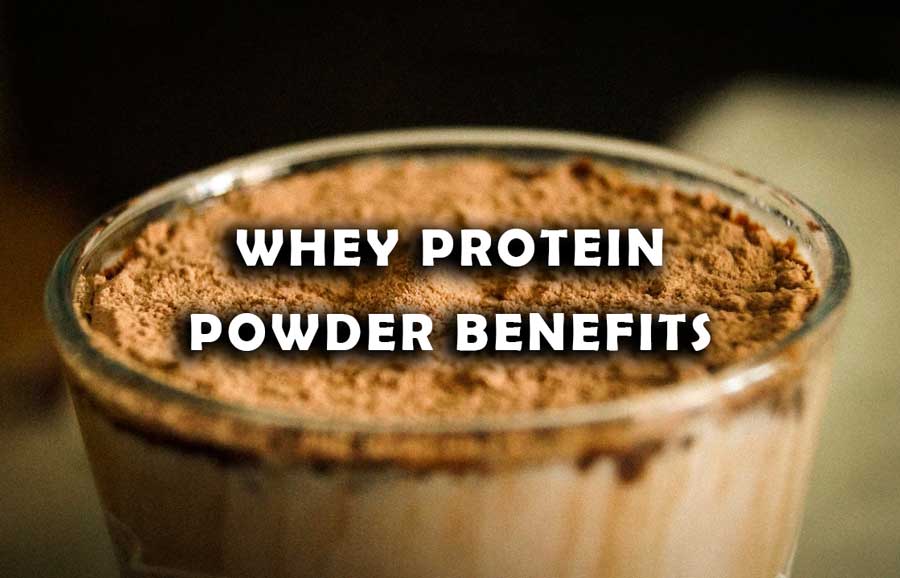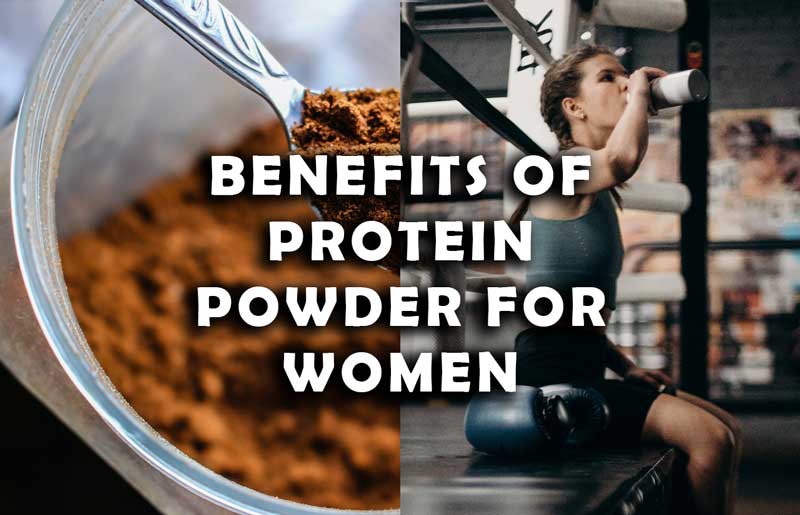Protein powder has become an important part in many people’s life because of its health benefits. And it is gaining more and more popularity day by day all over the world.
And why not, it is the most convenient way to increase your daily protein intake. Along with other health benefits, protein powder is best for building muscles.
Its benefits are not only limited to muscle building. Let’s see the other benefits of protein powder and how it can help you in numerous ways in your health and fitness journey.
Benefits of Protein Powder
Before diving into the benefits of protein powder, let’s first understand what it is. Protein powder is a concentrated source of protein derived from various sources, including whey, casein, soy, and plant-based options like pea and rice protein. It is taken as a supplement to increase protein intake, especially for individuals who struggle to consume enough protein through their regular diet.
Protein is not only beneficial for the betterment of muscles but is essential for almost all the body parts. It is an important macro-nutrient that helps in many body functions.
Here are the top health benefits of protein powder –
1) Muscle Growth and Repair

One of the best benefits of protein powder is, it helps in muscle growth as well as muscle repair. It is probably one of the most common reason for its popularity and consumption.
When you engage in physical activity, your muscles experience microscopic tears that needs repairment to grow stronger. Protein powder provides your body with the necessary amino acids needed to repair and grow muscle tissue.
2) Protein powder benefits in Weight Management
Protein powder benefits in weight loss
Protein powder can also aid in weight management. It helps to increase satiety, keeping you feeling full for longer periods and reducing the likelihood of overeating. Additionally, a high-protein diet helps body to increase metabolism, allowing the body to burn more calories at rest.
Increase in body muscles also helps in increasing body metabolism and hence, helps in burning calories faster.
Protein powder benefits in weight gain
Protein powders that contain moderate amount of carbohydrates and fats in them, can help in weight gain. Such protein powders are best for people looking for gaining weight in form of muscle mass.
Combining strength exercises along with it can have amazing results.
Note: to attain such results, balanced diet with high calories are necessary as well.
3) Improved Bone Health
Protein is not only essential for muscle growth but also for bone health.
Studies have shown that consuming adequate protein can help improve bone density and reduce the risk of osteoporosis, especially in older adults.
4) Improve Hair Health
Protein is also linked to increased hair health and hair growth. Hair being mostly made up of protein, consuming protein powder can help in increased hair growth and it’s overall health.
5) Convenience and Accessibility
One of the most significant benefits of protein powder is its convenience and accessibility. It can be challenging to consume enough protein through whole foods, especially for individuals who follow a vegetarian or vegan diet. Protein powder is an easy and efficient way to increase your daily protein intake, whether you’re on-the-go or have a busy lifestyle.
6) Versatility
Protein powder is incredibly versatile, and there are numerous ways to incorporate it into your diet.
You can mix it with water, milk, or your favorite smoothie recipe. You can also use it in recipes, such as protein pancakes or protein bars, to increase the protein content of your meals.
7) Helps in completing Protein Macros and Balanced Diet
Protein powder can immensely help in completing the required protein macros in diet. This helps in perfectly balance the diet and balance the macro-nutrients for an individual. This is greatly helpful for a person who is struggling to consume enough of their daily protein requirement.
It is also very convenient for vegetarians and vegans, as their diets can have less of protein ratio.
8) Improved Immune Function
Protein plays a crucial role in immune function, aiding in the production of antibodies and supporting the body’s defence against infections and illnesses.
Consuming adequate protein through protein powder can help improve immune function and reduce the likelihood of illness.
9) Reduced Inflammation
Research has shown that consuming adequate protein can help reduce inflammation in the body, which is associated with several chronic diseases, including heart disease and cancer.
Types of Protein Powder and benefits
There are several types of protein powder available, each with its unique benefits. Among them whey protein is the most common and most consumed. But there are other alternative protein powders available that most people don’t know about.
Protein powders are of 3 types – non-vegetarian protein powder, vegetarian protein powder and vegan protein powder.
Here are some of the most common types of protein powders –
1) Whey Protein Powder
Whey protein is one of the most popular types of protein powder. It is derived from milk and is a complete protein, containing all nine essential amino acids. It is quickly absorbed by the body and is ideal for post-workout recovery.
2) Casein Protein Powder
Casein protein is another type of protein derivative of milk. It is a slower-digesting protein, making it ideal for a sustained release of amino acids to the muscles throughout the day.
3) Soy Protein Powder
Soy protein is a derivative of soybeans and is a complete protein. It is an excellent option for vegetarians and vegans and can help to improve heart health.
4) Pea Protein Powder
Pea protein is another plant-based protein that is a good source of essential amino acids. It is also hypoallergenic, making it an excellent choice for individuals with food allergies or sensitivities. Pea protein is often used in protein powders and other supplements, as well as in plant-based meat alternatives.
How Much Protein Powder Do You Need?

Amount of protein powder an individual needs depends totally on their goal, age, body weight, height and their diet.
For a person whose diet is low in protein, they can have 2-4 scoops of protein powder a day.
For a person with good protein ration in their whole diet, can go for around 2 scoops a day.
To gain more muscle you need more protein and hence you can increase protein powder scoops per day.
Generally, it is recommended to consume 0.8 grams of protein per kilogram of body weight, with athletes and active individuals requiring up to 1.6 grams per kilogram of body weight.
Note: It is better to get your dietary nutrients through your food and should consume supplement only to fill in the gaps.
How to consume protein powder for greater benefits
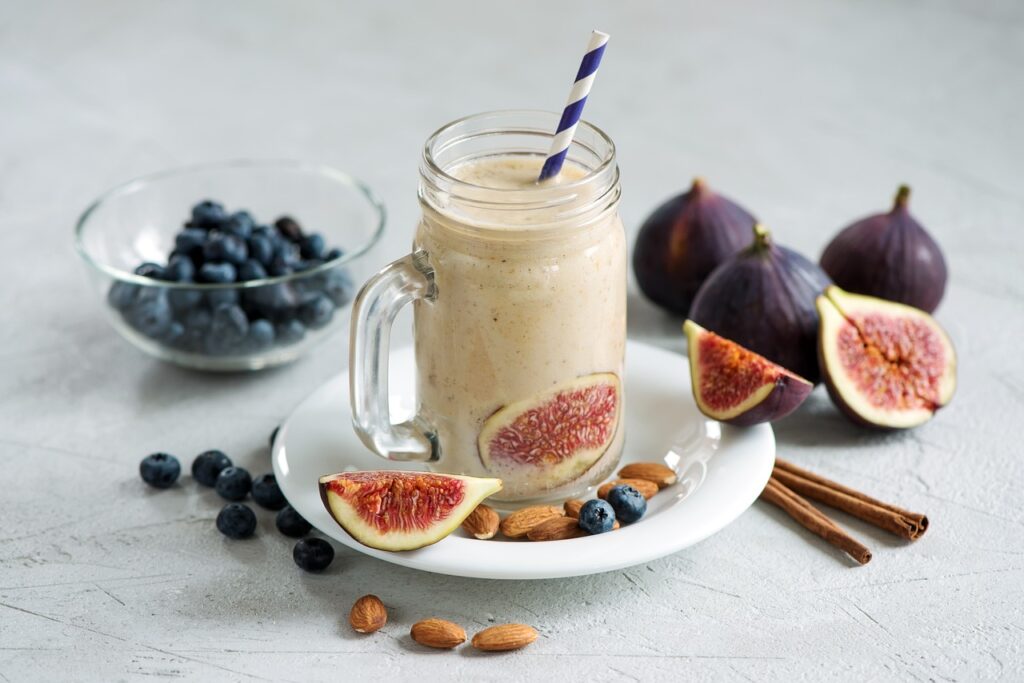
- Have it with water – you can directly mix your protein powder into water and then have it. This way, it has high protein ration in the shake.
- Have it with milk – One of the common ways to have protein powder is by mixing it with milk. This helps in gaining the other nutritional benefits through milk.
- Make smoothie – you can make number of smoothies out of protein powders. Whatever flavour you like, you can just add 1-2 scoops of protein powder in it and have it. This gives you the taste you desire along with benefits of protein from protein powder.
- Make snacks – Another best way of having protein powders is by adding them to your snacks like pancakes, muffins etc. This takes time but if you are more of a foodie as well as health conscious person, it is a way to go.
- Add in any meal – Protein powders have become so versatile that you can literally add them to any meal or shake you want and you will be good to go.
Risks and Precautions
While protein powder offers numerous benefits, it is essential to be aware of the potential risks and precautions associated with its use.
Overconsuming protein powder than your body needs, can result in many side effects rather than benefits. Having protein powder for its benefits, moderation is the key
Here are some side effects related to protein powders –
- Allergies – Some individuals may be allergic to certain types of protein, such as whey or soy. It is important to read the ingredient list carefully and avoid products that contain allergens.
- Digestive Issues – Protein powder can cause digestive discomfort, such as bloating, gas, and diarrhea, in some individuals. It is important to start with a small serving size and gradually increase as tolerated.
- Whey protein acne – many people face acne after consuming whey derived protein powder. It is best to move to other source of protein powder than whey protein.
- Sore throat – many people get sore throat after drinking protein powder. This can be due to not mixing the protein powder before consuming or can be a result of certain type to protein powder or ingredients present in it.
- Interactions with Medications – Protein powder may interact with certain medications, such as blood thinners or thyroid medication. It is important to consult with a healthcare provider before starting any new supplement regimen, especially if you have underlying health conditions or are taking medication.
- Overconsumption – Consuming too much protein powder can lead to an overconsumption of protein, which can put strain on the kidneys and liver. It is important to follow recommended serving sizes and not rely solely on protein powder as a source of protein in the diet.
In summary
Protein powder is an excellent supplement to enhance your health and fitness goals. It offers numerous benefits, including muscle growth and repair, weight management, improved bone health, and improved immune function.
With various types of protein powder available, it is essential to choose the right one for your needs and consider the potential risks and precautions associated with its use.
Also, just because protein powder has numerous health benefits, doesn’t mean it doesn’t have side effects. Stay away from overconsuming and have it in moderation.
FAQs
1) Is protein powder safe for everyone to consume?
While protein powder is generally safe for most individuals, it is important to consult with a healthcare provider before starting any new supplement regimen, especially if you have underlying health conditions.
2) Can protein powder cause weight gain?
Consuming excess calories from any source, including protein powder, can lead to weight gain. However, protein powder can aid in weight management by increasing satiety and promoting muscle growth. It si all about managing calories.
3) How should I choose the right protein powder for my needs?
Consider your dietary restrictions, goals, and preferences when choosing a protein powder. It is also essential to choose a high-quality product with minimal added sugars or artificial ingredients.
4) Can protein powder replace whole food sources of protein?
While protein powder can be a convenient way to increase your daily protein intake, it cannot replace whole food sources of protein, which offer additional nutrients and health benefits. It helps to compliment whole food and not replace them.
5) How much protein powder should I consume per day?
The amount of protein powder you need depends on your individual needs, including your weight, age, and activity level. Generally, it is best to consume 0.8 grams of protein per kilogram of body weight, with athletes and active individuals requiring up to 1.6 grams per kilogram of body weight.

